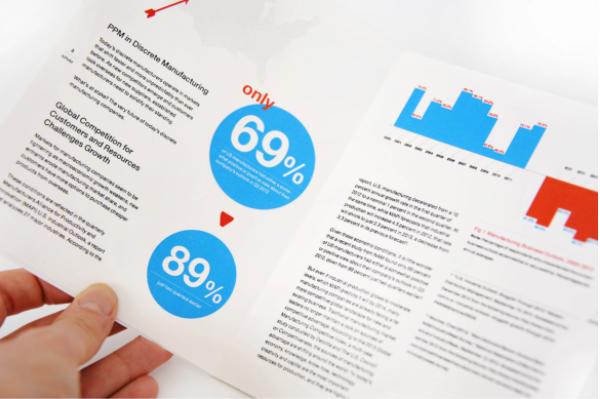If you’ve been online browsing almost any kind of service, chances are you’ve been offered ‘a free white paper on [insert topic here].’ But if you’re not totally sure what they are or whether you should think about authoring one, this post should help you to decide.
We’ll also go through the most common mistakes and pitfalls you can make with your content marketing if you choose to put together a white paper.
What Exactly is a White Paper?
A white paper is a long-form, in-depth report about a specific topic. For the author, it’s a way to demonstrate authority and subject matter knowledge. That’s why it’s an attractive option for businesses to pick up as part of a well-rounded content marketing strategy. It allows the business to showcase its knowledge and expertise.
The best white papers are valuable resources for readers. They don’t ‘tease’ a solution or try to ‘sell’ overtly. Instead, they show a clear problem or scenario then step through options, trade-offs and possible solutions.
So the best white papers inform and persuade rather than ‘tell and sell’.
White Papers Versus Blogs and Ebooks
The main thing that sets white papers apart from your shorter form content marketing is the depth of knowledge required to write one. A typical blog post hosted on your website might be between 500 – 1000 words and cover one or two topics in fairly low depth. They are suited for common or less complex problems.
Ebooks are somewhat similar to blogs in their subject matter, but not their length. Ebooks might be a useful collection of blog-style articles, organised as chapters and formatted and edited coherently.
White papers are the ‘university standard paper’ of content marketing. Preparing one takes time and effort. They typically come with references at the end of each section or the end of the document to support the main points that you are making. And they examine a problem from multiple angles, not just one. So the other main difference between a white paper and other forms of content marketing is the time it takes to put one together and edit it. That means that white papers are best suited to knowledge-based businesses or those that offer a relatively expensive product or service that requires multiple steps in the sales and education process to arrive at a sale or ongoing contract.

Common Pitfalls and Mistakes of White Papers
The last thing you want if you commit to writing a well-researched, labour intensive white paper is for it to not actually resonate with your target audience. Business white papers aren’t like Christmas bestsellers that get hundreds of thousands of readers. Even the most successful business white papers might reach only a few hundred readers, with the goal that some significant percentage of those convert to paying, satisfied customers.
So here are some pitfalls to avoid when writing about your white paper.
- Holding back/hiding the solution – downloading and reading a white paper is a strong signal of intent from a potential customer. So there is nothing more likely to annoy them than a ‘tease’ at the end of the document that says something like ‘call us on this number to hear the solution to all your problems’. This is likely to be counterproductive for you and will damage your reputation.
It can feel counterintuitive, but the more generous you are with your ‘inside’ knowledge and information about the industry, the products and the options, the more trust you build.
- Poorly researched/disprovable claims – making ‘marketing’ claims (e.g. we’re the leading service provider for [insert service] for businesses) or just having poorly researched claims are poison to your white paper.
If you make a single claim that can be disproven, then all the time invested in your white paper is wasted. The point of a white paper is to build credibility and authority. If you make poorly researched claims (even as the result of an honest mistake), you will not reap any benefits from your efforts.
So, to tweak the claim above, research might show that a statement such as ‘we’re the leading service provider for [insert service] for businesses with less than 100 employees in New South Wales’.
- ‘Me focus’ not ‘you focus’ – white papers are about illuminating a problem that potential clients might face, then showing them the options for solutions. They are not a long-form opportunity to spruik your products, your company or your business. People resent being ‘sold’ to. This is even more so if they believe that they are going to receive a helpful solution, but instead, get a marketing pitch.
Always remember to focus on the client and their problem.
Key Takeaways
If you are interested in content marketing or putting together a white paper to attract high value, high quality, high longevity clients, then we invite you to contact us to discuss the options that will best suit your business and needs.

Leave a Reply